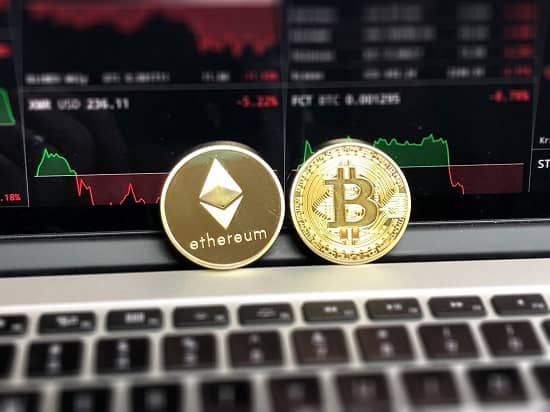Blog
Gold vs Cryptocurrencies Pros and Cons
Gold versus Cryprocurrencies – which is best?
Before we delve into a discussion regarding the merits and demerits of either investing in gold or cryptocurrencies, we need to first take a step back and assess the nature of these asset classes. Of course, gold has been around for more than 6000 years, much earlier than modern day financial trading and investing. Therefore, gold is considered to be the archetypal precious metal, never fading in glory and relentlessly standing the test of time. Cryptocurrencies, on the other hand, is a really new kid on the block. In fact, most serious investors never considered it as an investable asset 9 years ago.
The rise of the cryptos
In December 2017, Bitcoin touched a price of $19,771. At that price, Satoshi Nakamoto, the elusive and anonymous inventor of the Bitcoin possibly had a net worth of $19.4bn, making him/her the forty-fourth richest person in the world. It all started in 2009 when a person going by the name of Satoshi Nakamoto published a paper on how the idea of a peer to peer electronic cash system could be what the world really needed. However, the idea of electronic money has been around for a while. In fact, when we transfer money using internet banking or use a credit card to buy something off the internet, we are using electronic cash in one way or another.


It’s an electronic representation of the money in our bank accounts that we’re using at that point on time. In today’s day and age, the concept of electronic money has revolutionised banking and finance. Our salaries, payments and money that we receive are no longer handed out to us in the form of cash or a cheque. The employers we work, or the parties that owe us money for simply transfer the money electronically into our bank accounts and we see this as a number on an electronic screen. But the idea of electronic currencies wanted to go a step further. Instead of transactions being carried out in globally accepted currencies like GBP, Euros or USD, which are approved by governments, cryptocurrencies envisioned a free, parallel economy that had the power to revolutionise international commerce.
Take our FREE Test to discover how exposed your wealth is to a market downturn.
The unique properties of cryptocurrencies
Nakamoto successfully addressed concerns related to forgery and online security. Nakamoto realised that using a centrally controlled server as a repository for electronic cash would make it an attractive target for cybercriminals. So, he came up with the idea of using a blockchain system to link records of transactions cryptographically. He housed this system on a decentralised network. By doing this, a unique, tamper-proof self-propagating ledger was created, that allows users to store and transfer value and use the units of value in exchange for goods and services like a traditional currency. Incredibly, the system’s property of self-propagation meant that hacking it was useless, as was trying to shut it down. This system also circumvented the need for a third party to store and quantify value or verify transactions. Therefore, it actually made banking services redundant.


Price discovery of Bitcoins
The flagship cryptocurrency was of course Bitcoin. 

Supply and demand
It’s important to draw a comparison with gold here. It is thought that the entire supply of gold in the world is estimated at 171,300 tonnes. Of course, anything that has unlimited supply cannot command great value. Bitcoin creator Nakamoto had complete control over its supply, so in keeping with this principle, he limited the supply to 21 million Bitcoins. It is thought that Nakamoto calculated this number based on the number of blocks per four-year cycle. The supply of Bitcoins is created through a process known as ‘mining’. This is a technology-based process, requiring expensive equipment and specialised hardware and software. Early adopters of the cryptocurrency were either miners or investors. Many believe that Satoshi himself holds 980,000 Bitcoins, roughly estimated at $5.8bn.


The foundation of the demand for Bitcoin was created during the global financial crisis since 2011. Many investors used Bitcoins as a hedge against the crisis, just like gold. Strict economic measures were introduced in Greece during the European debt crisis. A daily withdrawal limit of 60 euros came into effect along with other draconian capital control measures. Greek investors moved to Bitcoin as a hedge, due to its freedom from central controls. Prior to that, in 2013 the government of Cyprus confiscated the savings of citizens as a measure to stem the country’s financial crisis. Those who could, moved their money to their Bitcoin wallets as a way to escape the purge. The devaluation of the Chinese Yuan saw Chinese investors moving to Bitcoin. Other global economic crises like the fall in the value of the US dollar have all contributed to the growing demand for Bitcoin and other cryptocurrencies.
Overnight millionaires
The success of Bitcoins prompted other cryptocurrencies to be introduced in the market. Litecoin, Dash, Ripple, Ethereum are all cryptocurrencies that followed the path of Bitcoin. The meteoric rise of the cryptocurrencies created overnight millionaires from all walks of life. Many of these people had been blessed by a stroke of luck, having bought into these currencies early on. Some were teenagers who bought cryptos in order to trade in online games. Many were speculators who bought into these as a lark, to see where it was going. Moreover, cryptocurrencies that came after Bitcoin tried to improve on Bitcoins shortcomings. Transaction time, throughput, scalability were all factors that these new cryptocurrencies sought to address.
Cryptocurrencies in decline
Drunk on the initial success of cryptocurrencies, investors from all over the world bought into the concept, hoping to get rich quick. Many of these were investors from countries like China and India who had little knowledge of cryptos and its markets. Still, others were people who started using this avenue in order to launder black money and escape taxes. Governments also feared that criminals, terrorists and drug lords could be using cryptocurrencies in order to move funds worldwide. The lack of any kind of governmental and central control could easily be abused and this made banks and authorities uneasy. Additionally, banks are legally obliged to ensure that they are able to identify the sources of money and procure audit trails so that illegitimate money cannot enter the system. Unfortunately for cryptocurrencies, this is a fallout of the insecurity that exists in the world, as we know it today.


Governments all over the world started clamping down on cryptocurrency exchanges and investors alike. Between 2017 and 2018, China escalated clampdowns on cryptocurrency trading and imposed bans on online platforms, exchanges and apps through which cryptos can be traded. Following in pursuit of China, India’s Reserve Bank (RBI) also initiated bans which include the transfer of investor capital to currency exchanges that deal in Bitcoin, Litecoin, etc. Countries across the world who have either abolished cryptocurrencies or taken action against its exchanges include Iceland, China, India, Bangladesh, Bolivia and many other countries across South America and Africa.

Pros and cons of cryptocurrencies
So, let’s summarise the pros and cons of cryptocurrencies and evaluate whether the investment is worth the risk and volatility.
Pros
- Cryptocurrencies, starting with Bitcoins were designed to be free from government and bank control and are tax-free, as well as bank charges and other transaction fees.
- Cryptocurrencies escape the forces of inflation and interest rate hikes or cuts.
- Provides investors with an opportunity to hedge against risks of an economic crisis, market downturn and volatility in global capital markets, just like gold and silver.
- Difficult to hack or sabotage as decentralised servers around the world play a key role in housing the system.
- Cryptocurrencies have generated extremely high returns over the last three years, creating millionaires across the world.
- In countries where cryptocurrencies are legal, it can be officially used and taxed, creating an alternate payment avenue. Since it is global, it is accepted all over the world.


Cons
- Although designed to bypass third-party control, cryptocurrency exchanges and e-wallet service providers levy charges, defeating the purpose.
- Lack of central control incentivises money laundering and illegal money being channelised through the system.
- Several countries across the world have clamped down on cryptocurrency exchanges and service providers.
- Cryptocurrencies are extremely volatile and investment involves huge risks.
- The system is complex and cannot be easily understood by the common man.
- The system isn’t really hack proof and once coins are lost, they cannot be recovered. A recent breach resulted in $40mn of altcoins being stolen.
- Cryptos aren’t universally accepted and can be used only through specific exchanges and platforms.
- Many market experts believe that cryptocurrencies are a bubble. A full crash may happen anytime as a result of investor fear or global bans. Actions by the Indian regulators caused Bitcoin prices to drop by 6.5%.


Cryptocurrencies vs gold
Gold investors benefit from a number of factors similar to cryptocurrencies, without the added risk and volatility.
- Gold beats certain market forces like inflation and has been traditionally used by investors as a hedge against market volatility.
- The price of gold has risen steadily over the years and while it does not post amazing returns in the way that cryptocurrencies have, it remains a stable and safe investment with low volatility.
- Gold has a proven role in an investment portfolio. Any investment advisor will tell you that. Infact, many investment advisors think that gold should occupy 5 – 15% of an investor’s portfolio.
- There is an internationally accepted and regulated framework that surrounds the gold trade. Organisations like the British Numismatic Trade Association (BNTA) have been around for a long time and regulate reputed gold dealers. So, when you buy gold bullion or bars, you can be sure that what you’re buying is genuine. Numerous cryptocurrencies, on the other hand, are being traded globally in an unregulated market. There is no guarantee of genuineness, and a rogue trader can easily defraud investors of millions by hiding behind the complexity of the exchanges and their infrastructure.
- Gold cannot be hacked as it is not a virtual asset parked in a server somewhere in the world. Although designed to be hack proof, this hasn’t quite been the case. Quite recently, Bitfinex, one of the world’s largest cryptocurrency traders by volume experienced a cyber-attack that crippled the exchange. Earlier, Mt Gox, the world’s largest Bitcoin exchange collapsed in 2014 following a major cyber-attack.
Cryptocurrencies are a relatively new entrant in the market and we do not have sufficient data to establish its credentials as a stable asset class with strong fundamentals. As discussed earlier, gold is a tried and tested stable asset class that is globally accepted and regulated. Gold was used to back major currencies around the world at one time and although the gold standard has long been discontinued, it is still viewed by many as the holy grail of currency value.
Call our gold investment experts to understand gold investments
At Physical Gold, our precious metals investment team love speaking with customers just like you about the best avenues for gold investments in 2018. Call us on 020 7060 9992 or get in touch with our team by simply filling out the contact form on our website. Why risk your hard earned money in the murky volatility of the world of cryptocurrencies? Our gold investment advisors are well placed to guide you on how to buy and store gold and build your portfolio on the back of a solid, strong asset that you can depend on in the years to come.
Image Credits: Pixabay, Keith Roper, Pixabay, Wikimedia Commons, Mick Baker and David McBee




Thanks for sharing this valuable information(Pros and Cons) with us about Crypto investment and invest in gold. This will help us to do invest in proper ways.
Thanks Taj. Glad you enjoyed it
Welcome Daniel